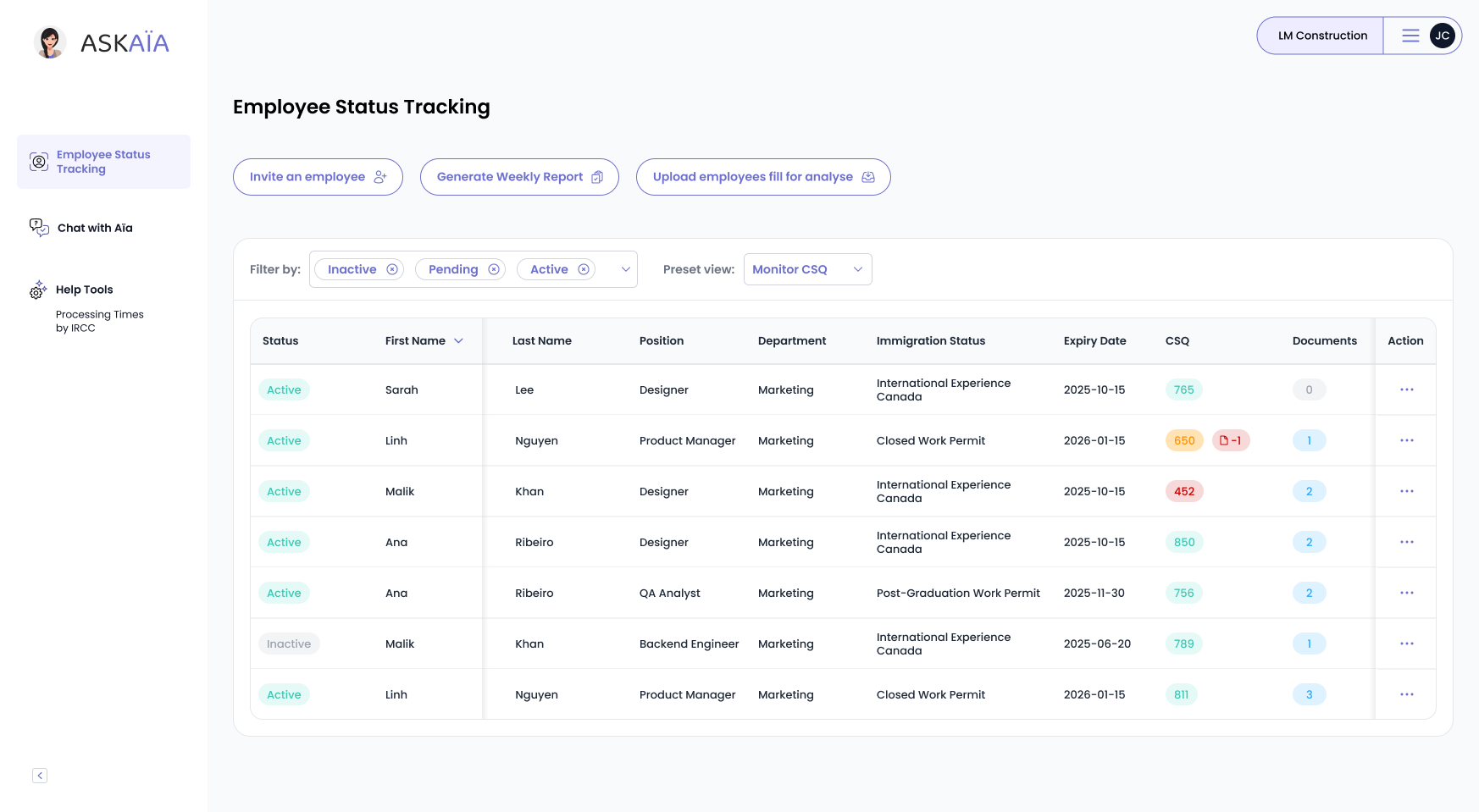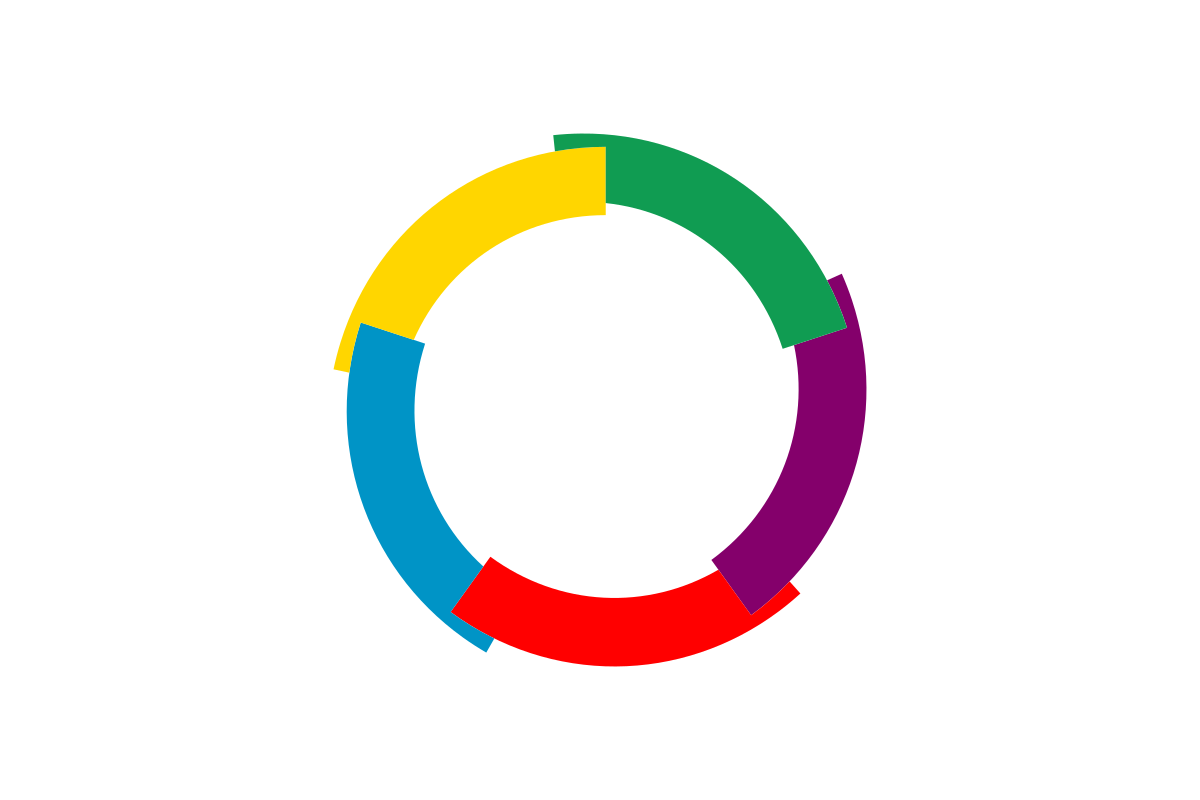The news of the Parent and Grandparent Program (PGP) pause for 2025 has undoubtedly left many families feeling uncertain and disappointed. If you're among those hoping to reunite with your parents or grandparents in Canada, know that you're not alone. While the PGP is currently not accepting new applications, there's a viable and flexible alternative: the Super Visa.
This guide will provide you with a comprehensive overview of the Super Visa, exploring its benefits, eligibility requirements, and the step-by-step process to apply. With 2025 bringing significant changes to Canada’s immigration policies, including the PGP pause, we’ll help you navigate these challenges and discover how the Super Visa can offer a path to family reunification. Let's explore your options together!
- Introduction: PGP Pause & Super Visa Options
- PGP Pause 2025: Key Facts & Impacts
- Super Visa: A Flexible Family Reunion Path
- Super Visa Eligibility: Income & More
- Apply for Super Visa: Step-by-Step Guide
- PGP vs Super Visa: Which is Best?
- Conclusion: Next Steps for Your Family
1. Introduction: PGP Pause & Super Visa Options
Dreaming of reuniting with your parents or grandparents in Canada? The recent Parent and Grandparent Program (PGP) pause for 2025 has likely left you with questions and perhaps some disappointment. But take heart, you're not alone, and there’s a strong, flexible alternative: the Super Visa.
This guide will provide a comprehensive overview of the Super Visa. We aim to help you navigate this challenging time and discover how the Super Visa can offer a path to family reunification after the PGP pause in 2025. We will delve into the specifics of the PGP pause, outlining key facts. Then, we'll highlight the advantages of the Super Visa for extended visits. Family reunification is our priority, and this guide serves as your roadmap, offering clarity and guidance.
You can not apply for the PGP in 2025. The Super Visa program is currently the best alternative for bringing your parents for extended visits to Canada in 2025 and beyond.
2. PGP Pause 2025: Key Facts & Impacts
PGP Pause in 2025: What It Means for Families
On January 4, 2025, Immigration, Refugees and Citizenship Canada (IRCC) announced a pause on new applications for the Parent and Grandparent Program (PGP) for 2025. This decision means IRCC will only process applications received in 2024. This news has left many families feeling uncertain about their reunification plans.
Processing Limits and Targets for 2025
For 2025, IRCC will process a maximum of 15,000 PGP applications submitted in 2024. Processing will occur throughout the year, from January 1 to December 31. This cap aims to manage existing backlogs and improve processing efficiency. It's important to note that no new applications will be accepted for 2025.
Future Immigration Targets for Parents and Grandparents
Canada's immigration target for parent and grandparent landings in 2025 is 24,500, down from 32,000 in 2024. Future targets are 21,500 for 2026 and 20,000 for 2027. Despite the PGP pause, the 2025 target will be met by processing backlogged applications and potential Super Visa holder transitions to permanent residency.
Reasons Behind the PGP Pause
The PGP pause is intended to clear existing backlogs and improve processing efficiency. It also reflects Canada's strategic focus on economic migration and temporary visas. While these changes aim to improve the system, they create uncertainty for families hoping to reunite with loved ones.
Impact on Families and the Need for Alternatives
This policy has a significant impact on families. It causes emotional strain due to prolonged separation and financial stress due to rising costs. The PGP is not an option for new applicants in 2025, emphasizing the need to explore alternatives like the Super Visa.
The Parent and Grandparent Program (PGP) historically used a lottery system to select potential sponsors. If the program were open to new applicants, interested sponsors would first submit an online "interest to sponsor" form during a designated period. From that pool, IRCC would then conduct a random draw, selecting a limited number of potential sponsors to proceed with a full application. Being selected through the lottery was not a guarantee of approval.
The selection process was randomized, and the number of invitations sent was based on the immigration targets set by the government. It’s important to note that the "interest to sponsor" system has not been opened since 2020, and currently the program is paused for new applicants for 2025.
3. Super Visa: A Flexible Family Reunion Path
The Super Visa: A Flexible Option for Family Reunification
The Parent and Grandparent Super Visa offers a flexible path to family reunification, especially after the PGP pause. It's a long-term visitor visa allowing parents and grandparents of Canadian citizens or permanent residents to visit Canada for extended periods. This visa provides a practical alternative for families seeking to stay connected.
Key Benefits of the Super Visa
- Long Stay Duration: You can stay for up to 5 years per entry without the need for renewal.
- Multiple Entries: The visa is valid for up to 10 years and allows multiple visits to Canada.
- Faster Processing: Super Visa applications are generally processed more quickly than PGP applications.
- Flexibility: It enables parents and grandparents to maintain ties to their home country while enjoying extended visits to Canada.
- No Lottery System: Unlike the PGP, the Super Visa does not use a lottery system.
When to Consider the Super Visa
Consider the Super Visa if you missed the PGP deadline, need a faster solution, or prefer a flexible option for extended visits. It's also a good alternative if you're not eligible for the PGP. While the PGP offers permanent residency, the Super Visa provides a temporary but accessible path to family reunification.
A Temporary but Accessible Solution
The Super Visa is a reliable and accessible solution for families who value flexibility and wish to avoid the uncertainty of future PGP quotas. It allows you to stay connected with your loved ones and share meaningful time together. In the next section, we'll explore the specific eligibility requirements for the Super Visa.
4. Super Visa Eligibility: Income & More
Sponsor Eligibility for the Super Visa: Key Requirements
To be eligible for the Super Visa, both the sponsor and the applicant must meet specific requirements. The sponsor, who must be a Canadian citizen or permanent resident, needs to provide a letter of invitation and meet the minimum income threshold. The applicant, who must be the parent or grandparent of the sponsor, must meet admissibility requirements.
Super Visa Health and Insurance Requirements
Applicants must also have valid Canadian medical insurance with a minimum coverage of $100,000 for at least one year. They must also undergo a medical examination to ensure they meet health standards. These requirements are crucial for ensuring the health and safety of visitors to Canada.
Minimum Necessary Income (MNI) for Super Visa Sponsors
The sponsor must meet the Minimum Necessary Income (MNI) to support their visitors. The MNI varies based on family size. Here's a guide:
| Family Size | Minimum Income (CAD) |
|---|---|
| 1 people | $29,380 |
| 2 people | $36,576 |
| 3 people | $44,966 |
| 4 people | $54,594 |
| 5 people | $61,920 |
| 6 people | $69,834 |
| 7 people | $77,750 |
For each additional person over 7, $7,412 must be added to the minimum income. |
|
Super Visa Documentation Checklist: What You Need to Apply
To prove you meet the MNI, you can provide various documents such as:
- Notices of Assessment (NOA) from the Canada Revenue Agency (CRA)
- T4 or T1 tax returns
- Employment letters confirming your position, salary and date of hire.
- Pay stubs from your job.
- Bank statements demonstrating your current financial situation.
- Other official proof of income.
- The income is assessed based on the sponsor's current financial situation.
Remember, the applicant must also have a valid passport and complete all required application forms. The medical insurance must be from a Canadian company and valid for at least one year. In the next section, we'll guide you through the Super Visa application process.
Aïa Expert Tips: Choose a Canadian medical insurance provider offering at least $100,000 coverage and consider plans with additional benefits like emergency care. Organize financial documents such as NOAs, pay stubs, and bank statements to clearly demonstrate your income. Double-check for any inconsistencies or missing details in your documents to avoid delays.
5. Apply for Super Visa: Step-by-Step Guide in 2025
Navigating the Super Visa application process can feel overwhelming. Breaking it into manageable steps ensures a smoother experience. Follow these five key stages to ensure your application is complete and accurate.
Step 1: Gather Required Documents
- Proof of Canadian status (e.g., citizenship certificate, PR card).
- A detailed letter of invitation from the sponsor.
- Financial documents like Notices of Assessment, T4s, or pay stubs.
- Applicant documents: passport, medical insurance, and photos.
- Proof of relationship (e.g., birth certificates).
Step 2: Complete the Application Forms
- IMM5257: Visitor Visa Application.
- IMM5707: Family Information (if applicable).
- IMM5713: Use of a Representative (if needed).
- Checklist:
- Ensure all forms are accurate and complete.
- Double-check for consistency in information.
- Use online form validators where available.
Step 3: Submit the Application
Where to Apply- Online through the IRCC portal or by mail (if applicable).
- Application Fee: $100.
- Biometric Fee: $85.
- Confirmation of submission.
- A copy of your application package.
Step 4: Biometrics and Medical Exam
- Wait for IRCC instructions to submit biometrics.
- Schedule a medical exam with an IRCC-approved physician.
Step 5: Await Processing
- Processing times vary by country. Use the IRCC tracker to stay updated.
- Be ready to respond promptly if IRCC requests additional information.
Aïa Expert Tips: Book your medical exam early with an IRCC-approved physician, and ensure results are submitted promptly. Use the IRCC portal for applications, scanning all forms clearly, and keep copies for reference. If an interview is required, prepare by practicing common questions and organizing supporting documents like financial proof and relationship evidence.
6. PGP vs Super Visa: Which is Best?
PGP vs Super Visa: Quick Comparison Table
Choosing between the PGP and Super Visa depends on your family's needs and long-term goals. The PGP offers permanent residency but is currently paused for new applications. The Super Visa offers a flexible alternative for extended visits. This section will compare the two options to help you decide.
| Feature | PGP | Super Visa |
| Duration | Permanent | Temporary (Up to 5 years) |
| Application | Lottery-based (Paused) | Continuous process |
| Financials | 20-year commitment | Proof of income, insurance |
| Healthcare | Full access | Private insurance required |
| Flexibility | Less flexible | Multiple entries |
| Processing Time | Longer (24-50 months) | Faster (e.g., 94 days India) |
| Work Rights | Yes | No |
| Citizenship Path | Yes | No |
Why Choose the PGP? Permanent Residency and More
The PGP allows parents and grandparents to settle permanently in Canada, with access to a wide range of social services including comprehensive healthcare, financial support programs and legal aid, and the right to work. However, the application process is complex and currently paused. The Super Visa allows for extended visits and is generally processed faster.
PGP and Super Visa: Challenges to Consider
With the Super Visa, access to Canada’s public health care system is not permitted. Instead, Super Visa holders must have private Canadian medical insurance with a minimum coverage of $100,000. They do not have access to social programs like unemployment benefits, and are not permitted to work in Canada while on this visa.
PGP or Super Visa? How to Choose the Best Option for Your Family
Consider your priorities. If permanent residency and access to full social services are your goal, the PGP is the path, despite the wait. If flexibility and faster processing are more important, the Super Visa is a strong option. There is no one-size-fits-all answer. In the next section, we'll provide a conclusion and next steps.
7. Conclusion: Next Steps for Your Family
The 2025 PGP pause has created challenges, but family reunification remains possible. The Super Visa offers a flexible and faster alternative for bringing your parents or grandparents to Canada. This guide has highlighted its benefits, including extended stays of up to 5 years per entry and multiple entries over 10 years. It is a viable solution for many.
Choosing between the PGP and Super Visa depends on your priorities and circumstances. While the PGP offers a path to permanent residency, the Super Visa provides a quicker and more flexible option for extended visits. Remember, the Super Visa could be a stepping stone to the PGP later on.
Now is the time to take action. Claim your free assessment with Aïa today to determine the best path for your family, and help you understand your eligibility and prepare you for success. Family reunification is an achievable goal. Don't let the PGP pause discourage you. With the right information and support, you can bring your family together.

Let’s get your demo started
Book a demo
You May Also Like
These Related Stories

Canada Pauses Parent and Grandparent Sponsorships for 2025
Canada has paused new sponsorship applications for parents and grandparents in 2025, focusing on clearing backlogs and improving processing efficiency …

Canada’s Parents & Grandparents Program: 2025 Update
Canada's Parents and Grandparents Program (PGP) is a key pathway for family reunification, allowing citizens and permanent residents to sponsor their …

Canada in 5: Francophone Students Get a Direct Path to Residency
Canada's new initiative for francophone students offers a streamlined path to residency, supporting minority French-speaking communities nationwide. L …
